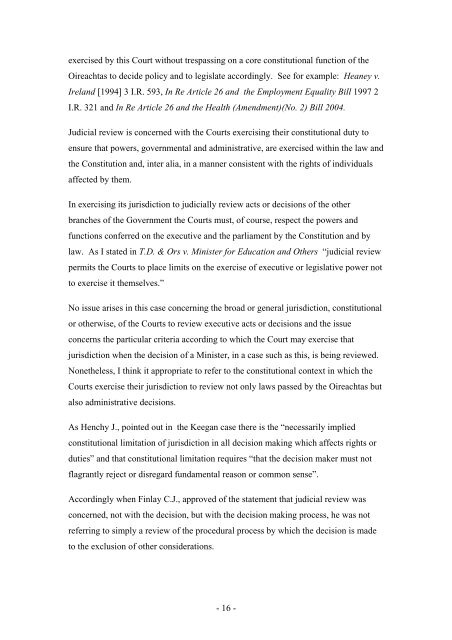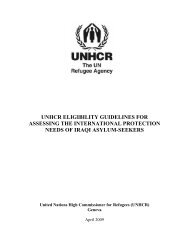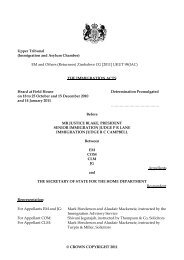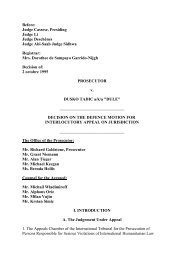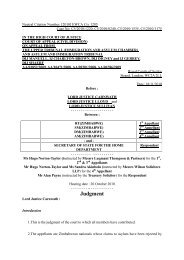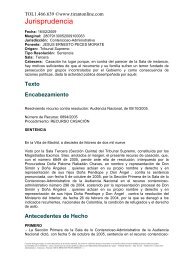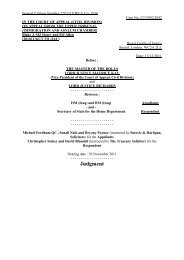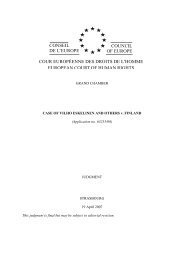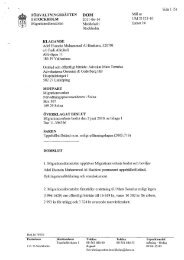Meadows v MJELR IESC 3.pdf - European Database of Asylum Law
Meadows v MJELR IESC 3.pdf - European Database of Asylum Law
Meadows v MJELR IESC 3.pdf - European Database of Asylum Law
Create successful ePaper yourself
Turn your PDF publications into a flip-book with our unique Google optimized e-Paper software.
exercised by this Court without trespassing on a core constitutional function <strong>of</strong> theOireachtas to decide policy and to legislate accordingly. See for example: Heaney v.Ireland [1994] 3 I.R. 593, In Re Article 26 and the Employment Equality Bill 1997 2I.R. 321 and In Re Article 26 and the Health (Amendment)(No. 2) Bill 2004.Judicial review is concerned with the Courts exercising their constitutional duty toensure that powers, governmental and administrative, are exercised within the law andthe Constitution and, inter alia, in a manner consistent with the rights <strong>of</strong> individualsaffected by them.In exercising its jurisdiction to judicially review acts or decisions <strong>of</strong> the otherbranches <strong>of</strong> the Government the Courts must, <strong>of</strong> course, respect the powers andfunctions conferred on the executive and the parliament by the Constitution and bylaw. As I stated in T.D. & Ors v. Minister for Education and Others “judicial reviewpermits the Courts to place limits on the exercise <strong>of</strong> executive or legislative power notto exercise it themselves.”No issue arises in this case concerning the broad or general jurisdiction, constitutionalor otherwise, <strong>of</strong> the Courts to review executive acts or decisions and the issueconcerns the particular criteria according to which the Court may exercise thatjurisdiction when the decision <strong>of</strong> a Minister, in a case such as this, is being reviewed.Nonetheless, I think it appropriate to refer to the constitutional context in which theCourts exercise their jurisdiction to review not only laws passed by the Oireachtas butalso administrative decisions.As Henchy J., pointed out in the Keegan case there is the “necessarily impliedconstitutional limitation <strong>of</strong> jurisdiction in all decision making which affects rights orduties” and that constitutional limitation requires “that the decision maker must notflagrantly reject or disregard fundamental reason or common sense”.Accordingly when Finlay C.J., approved <strong>of</strong> the statement that judicial review wasconcerned, not with the decision, but with the decision making process, he was notreferring to simply a review <strong>of</strong> the procedural process by which the decision is madeto the exclusion <strong>of</strong> other considerations.- 16 -


